Poll: Do You Believe Christians Can Enjoy Fictional Magic?
I’m exploring fictional magic, witchcraft, sorcery, and the occult, and Christians’ responses.
Want to assist?
Here’s why I’m doing this. At and after Realm Makers in Philadelphia two weeks ago, I’ve enjoyed several conversations about magic in fiction.
What is fictional magic?
Does Scripture condemn fictional magic?
Does the fictional origin/power source matter?
What if immature readers cannot discern a popular story series that includes magic?
Does a reader’s background with the occult, or familiarity with people with occult backgrounds, matter?
I’ve explored this topic before, in articles such as Winners Don’t Do Witchcraft and Deuteronomy 18 Witchcraft: What It Is and Isn’t.
But clearly this topic is evergreen.
And this time, rather than writing more about it, I’d rather hear from you.
So here’s the poll. I’ve made it so you can select more than one option. Why? Because I’m sure many Christians have held differing views on the topic of fictional magic. Maybe even now you’re not sure, and hold two views at once.
I’d also love to hear your story. What has/have been your view(s) on fictional magic before? Why did they change?
And if we need another poll answer, I’ll add another option.
Thanks for your help. And always remember the true “magic” of a potentially controversial discussion — friendship!
Note: Since this article’s and poll’s publication early Friday, Aug. 12, I have fixed a poll typo, added a few options, and even clarified the title based on feedback. Thanks for the excellent discussion.


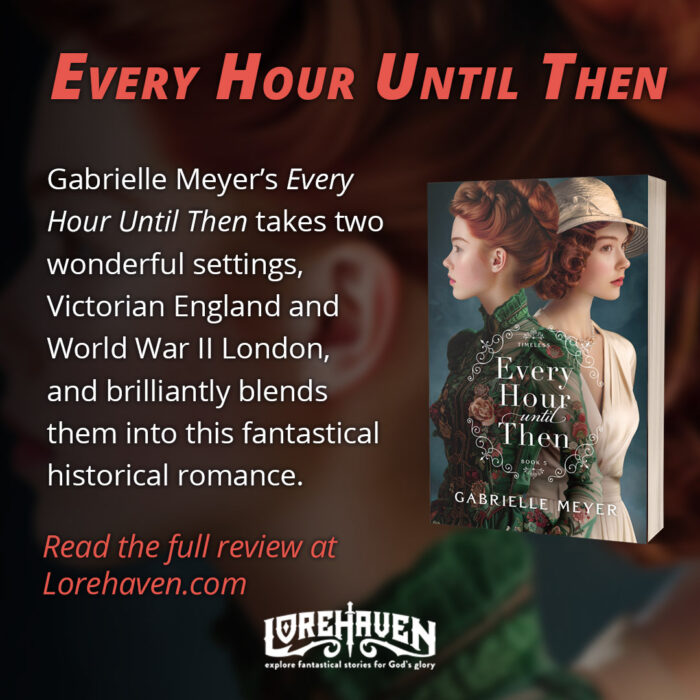
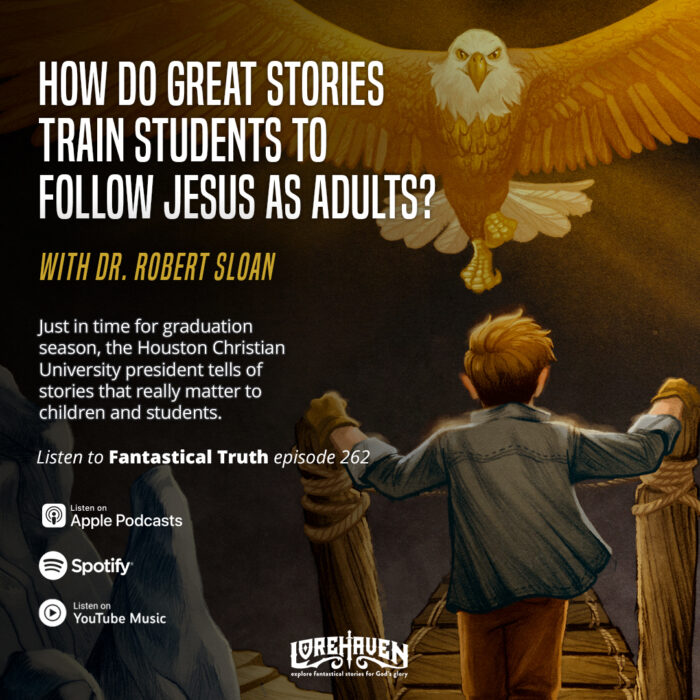
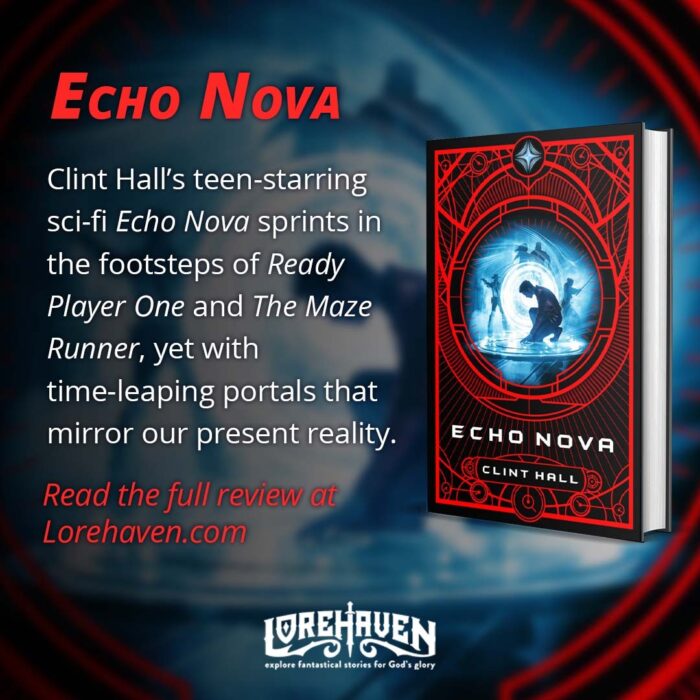
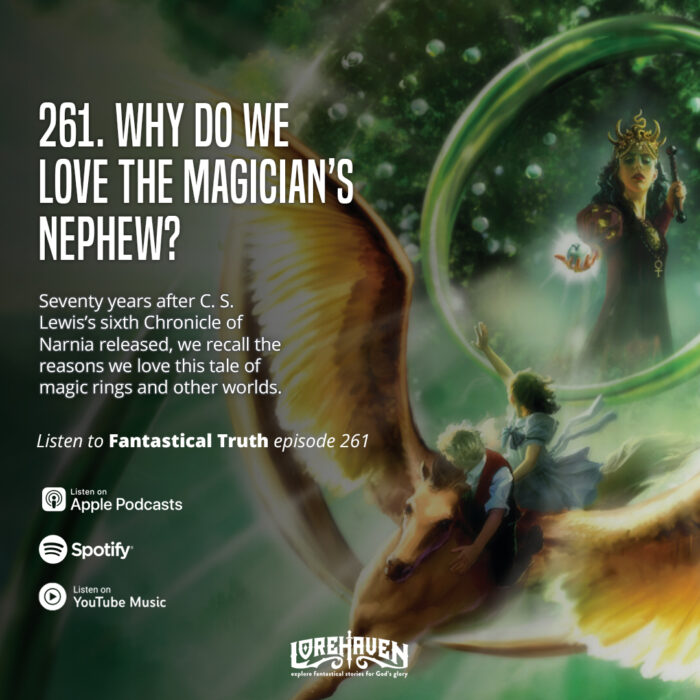










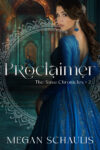
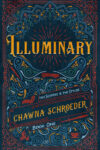

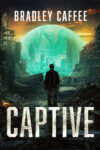

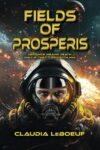
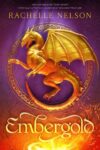


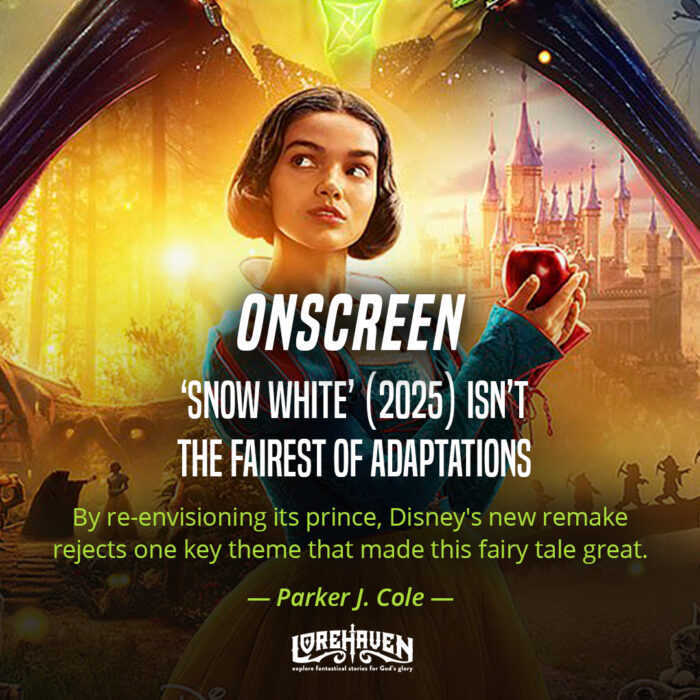
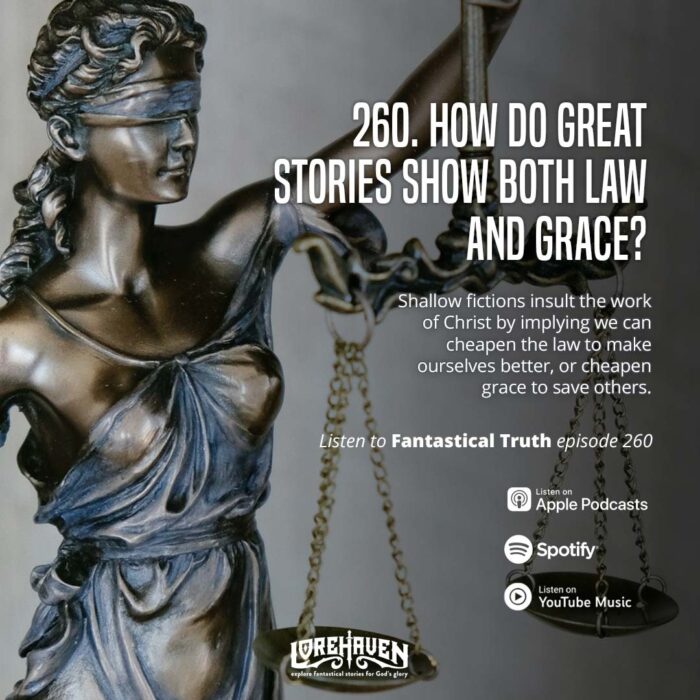
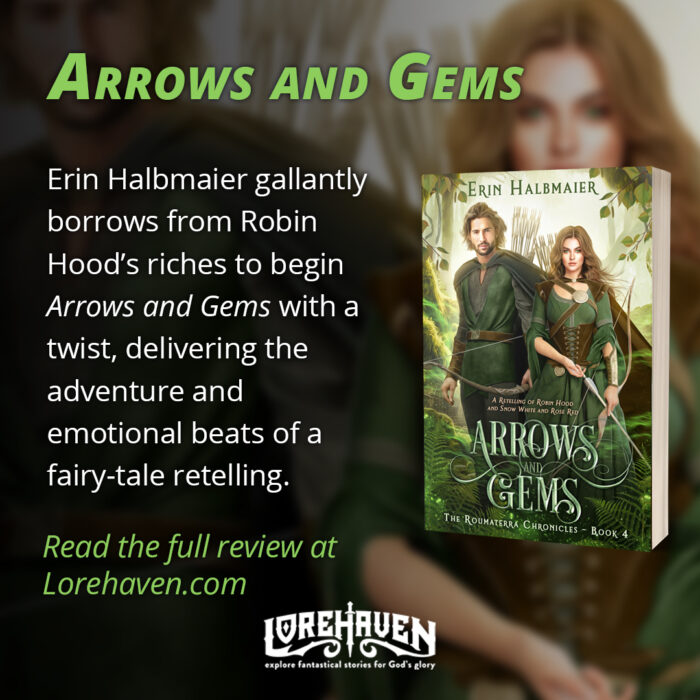
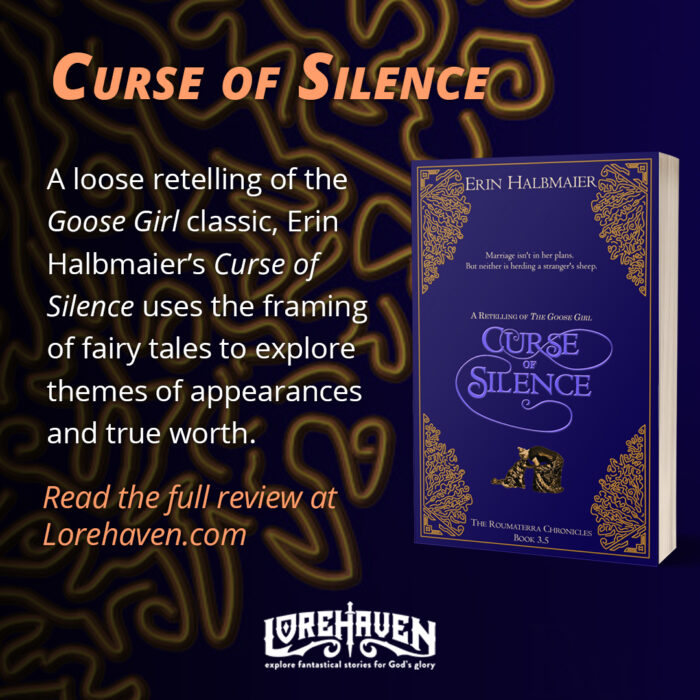
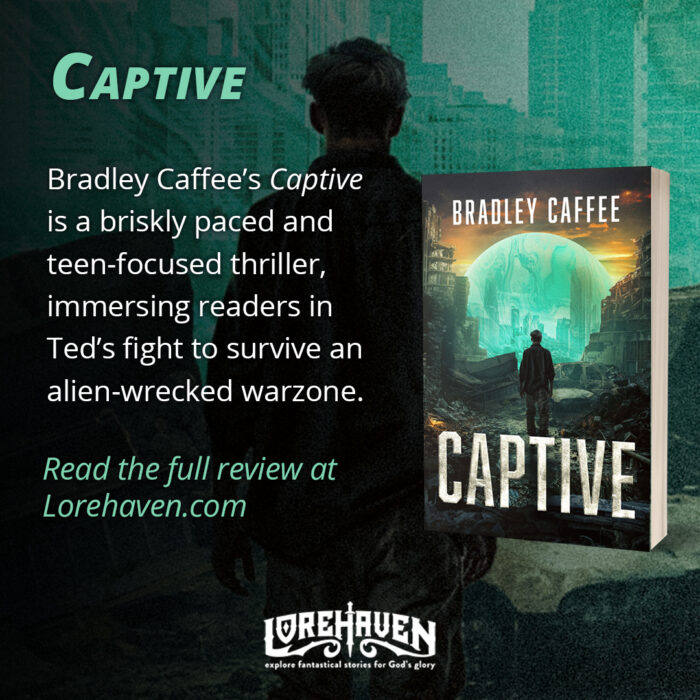


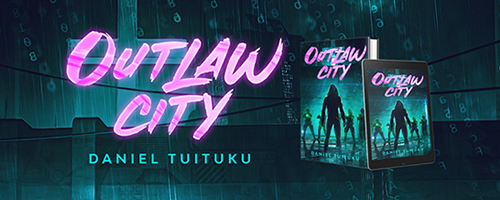
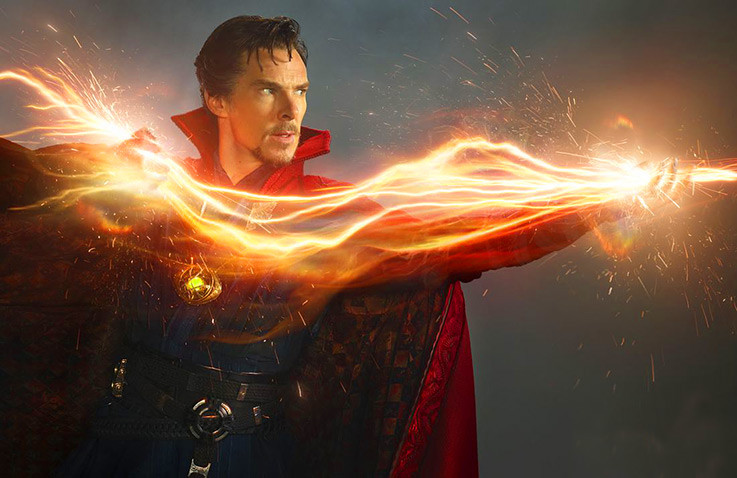




Tough question and it was hard to choose my answer; my preference in storytelling or reading is that magic = bad, and good unexplainable is something other than magic; e.g. psychics have a (God-given) gift, while (evil) witches barter for (unholy) supernatural assistance.
I remember hearing/reading as a teen that the occult is man’s way of trying to gain supernatural power over God, or gain supernatural power in ways not sanctioned by God.
At that time I decided that magic in fiction was only okay with me if it was natural to the characters or the people of their world (which is God-given, whether it came by being born with the powers or through science) or if a God figure in the story directly gave it to them. If those factors were not present, it would have to be portrayed as evil.
Those are my guidelines for my own self as a writer, although as a reader I personally prefer magic that stays within these parameters as well. It’s uncomfortable to me when there’s a slight resemblance to occultism in real life, although that’s not a “deal breaker” for me personally if the story has reasons for it (although I would not write a story like that).
Some of the magic in Harry Potter is on the edge of okay for me. K.M. Carroll’s “Malevolent” has some occultish-feeling magic too, but she explains it as a scientific aspect of the world…so, also on the edge, but a book I still enjoyed. 🙂
Thanks for hosting more discussion along these topics!
A fictional magic’s resemblance to occult imagery, symbols, ideas, or practices does not bother me. But I can see how it would bother other people.
In my case, I simply fail to draw those associations, out of ignorance.
In my case, then, I’m arguably “safe,” because sinful Content won’t sneak up on a person who is completely unaware of the associations. For example, someone who did drugs, sex, and other anti-God activities in the 1960s will have a different (and potentially sin-inducing) response to certain bands or rhythms than most would now.
As a specific example, consider an image like this: a man with a goat’s head. A few of these are mentioned in passing in The Chronicles of Narnia. Someone familiar with occult or even Satanic imagery might balk. Isn’t this an evil image, because people who practice pagan religion use it as an evil image? But Scripture has nothing to say one way or the other about an image like this. It may feel very evil to someone, and that feeling should not be discounted. But it is not, itself, evil.
I prefer the magic to be a natural ability, not something dependent on external sources. Harry Potter dances on a thin line there in a few places.
When I was 12 or 13, I read something condemning all forms of magic in Christian fiction and threw away my Oz books, my Bunnicula collection, and a few other things. But I just couldn’t reconcile anyone condemning the Narnia books and I kept them. After several years of thought, prayer and discussion I revised my opinion to what it is now. And I’ve always regretted throwing away those books.
I had a tough time answering this question too… At this point in my life, I have no problem reading Harry Potter, Emissary, etc. because I can simply look at the story for what it is, a story. That said, this has not always been the case. When I was in elementary school, I was a massive reader, and read things way above the level that I technically should have been. The problem with this was that, being so young, even knowing that it was fictional, I had a hard time actually realizing that it wasn’t real. I can remember being convinced that, given the proper technology, it really would be possible to acquire the DNA of animals and transform into them in order to fight aliens. I also, after reading a good deal of books like Chronicles of Deltora and Secrets of Droon, was convinced that with the proper words and tools, magic could actually be achieved. I thank God that He brought me away from that before it was too late. Anyway, coming out of that, I cut myself off from all forms of story magic, because I didn’t want to have the temptation to come back. Recently, I have started reading it again, primarily because of my interaction with the Realm Makers group. I find that I still have to make a conscious effort to not try and make it real, however, with discernment, I do not believe it to be a problem. I am quite sure that most other readers don’t struggle with the issue if figuring out what it real and what isn’t, and thus I don’t see an issue with it. However, it is definitely something to keep in mind…
And now I’m imagining a show where LeVar Burton introduces us to new science fiction stories and Neil deGrasse Tyson breaks down what is actually vaguely plausible and what is plot-convenient science babble. I’d watch the heck out of that.
I might not, because NGT is such an imagination buzzkill (to say nothing of his utterly un-self-aware materialism and Science-ism)!
[Insert righteous indignation that NGT is anything resembling a buzzkill]
He did the voice on Gravity Falls when Waddles the pig ate brain-goop and became genius, so I think he’s a good sport about stories. And, like, yeah he’s going to be big on science, he’s a scientist and science educator. That’s his thing.
It’s not just anti-science zealots who have the same response: Neil deGrasse Tyson is being a real buzzkill about Star Wars.
Nope, not over my righteous indignation, because butthurt over mild criticism of space physics and BB-8 ain’t gonna kill my <3 for NGT.
We seem to agree that magic-as-talent is acceptable. Also, I think it’s ok, if the character was chosen by some outside force. I’m watching PreCure Smile/Glitter Force and the girls in the show are hand picked to be gifted with magical powers.
I always took it this way…
A work of fiction where Harry Potter-like or LOTR-like magic exists is a world different from our world in that that sort of magic doesn’t exist here. Much like in the Marvel universe it is possible for a man to be engulfed in flames and fly, or be transformed into a green rage monster. Oh, sure… they try to explain it with convincing psuedo-scientific explanations like gamma rays and such, but really, is it any less magical?
Those styles of magic are part of the fabric of those worlds much like gravity and thermodynamics are part of the fabric of this one, so to compare their magic with the standards of our world is not quite fair. It exists there. Not here.
That being said, the source of that magic may be evil or not- that needs to be decided- but it must be decided by the standards of that world. It can be reflected in this one, but it must rest in that one.
I really don’t see an issue.
Matthew T. Dickerson lays out some very good principles on assessing fictional magic in his book “From Homer to Harry Potter.” (Warning, much of the book is rhapsodies about how great Tolkien is, but eventually he does get to analysis).
Here are a few I remember: is the magic essentially technology? (i.e. is used but not explained in a technical sense) Is it an inherent ability some people are born with? Is it something anyone can learn (e.g. a science)? Is it an inherent part of how this fictional universe exists (i.e. like physics of an alternate universe) Does it depend on commanding a spirit/beast? Is it used to dominate or subjugate others to the will of one? And most importantly, is there a clear division between good and evil?
I believe the injunction in Deut 18 is less about entertainment choices and more about commanding people not to attempt to control the future/their own fate.
I’ve always read books and watched shows with magical characters and magical places, and it has always been my happy place. I feel there is a clear distinction between fantasy magic and occult magic. Levitating things, or whatever, with your “powers” (whether God-given, or genetic, or no explanation offered makes no difference to me) is not the same as trying to predict the future or contact spirits. In other words, I’ll read Harry Potter all the live-long day. But I’m not going to go to seance or cheer a book that glorifies that sort of thing.
i guess I simply don’t see the harm in wishing I could make my bed or change my hair color with the wave of my hand, or even the wave of a wand. How is that evil? How is that anything like lighting candles in a circle in order to reach a spirit so you can curse (or even “bless”) someone with powers that are not your own?
In my own writing, magic is something a person can do, something that is part of who they are, and in the third book (which is distinctly allegory) I make it even more clear that it is a gift/ability we are given. I contrast that in the first two books with characters who use “false” magic (or dark magic) such as Tarot cards and Ouija boards, and even have one character come around from dark magic to accept “real” magic.
I think every author should choose for themselves what they feel God wants them to do, and every reader should decide what is okay for them to consume. Both should be able to do this and not be judged by others.
When I write, my comfort zone means I’ll deal with superpowers, but I won’t use anything that resembles magic. My superpowers, be it shapeshifting werewolves or superheroes, are made that way by unexplainable science. If I mess with anything that resembles real magic, it will either be evil or be explained. (Example: A “wizard” turning someone into a wolf would mean they probably had access to werewolf saliva.)
When it comes to my reading choices, I like to stick to “magic” that has rules, such as Brandon Sanderson’s Mistborn. Part of this is because I don’t like the realistic type magic, but another part is that I like “magic” with rules. I want to be able to keep track of everything the characters have at their disposal.
I couldn’t use any of the answers provided.
In general, magic is on the side of evil. This is because magic is a personal power, under control of the person. Supernatural occurrences [from God] are under His control with His power. Advanced science can seem like magic. Events from evil can seem very powerful, but they are normally a result of lies and bondage. The demons have power over those who fear and are driven by lusts. They are powerless over a believer unless God is allowing something for a time.
A character can trust God and rely upon His power, but a believer cannot control, only channel, the power. The trust is that He is able to help. God normally chooses to work through people submitted to His lordship. His sovereign acts are normally too wise and subtle to be seen by normal mankind.
A psychic is just another person wielding power outside of God. The enemy can counterfeit many things to appear to offer personal power to those who seek it. All of the world’s systems are run by the enemy. So demonic forces seem to have a lot of power at their disposal.
But real power from God is quite different and given for different purposes.
Fiction, by definition, allows the writer to do whatever he or she wants to do. I read many books where this is the case. In most of these stories, magic is written as an innate personal gift or a set of principles and powers which can be learned. Science is seen as outside the realm of the spirit. I can handle that and enjoy the tale, though I realize that it is far outside Truth. Originally, science was intellectually searching reality for the basic principles which God used in creation. Now, it has become religion.
A character can live with a trail of miracles in his or her wake. It is possible to have the Holy Spirit active in your life, day in and day out. But books sharing that truth in fantasy and scifi are rare.
If we are attempting to write powerful fiction, we need help from the source of power—either God or the Enemy. Spiritual warfare is reality. I deal with it daily. It’s rarely seen in Christian fiction. I do get tired of the comic book angel/demon Hollywoodisms. I know they are popular, but so are vampires. Personal power is on the side of the enemy. But the person seeking the face of God walks in His power daily. If you look carefully, you’ll see that originally most scientific truth was discovered by inspiration [in spiritus, in the spirit, knowledge given by God]. Only recently [the past century and a half] has it been brought over to the side of evil. There is only good or evil, no neutral ground.
Godly power brings love, joy, and peace [shalom and all that it implies] with it. Enemy power brings fear, confusion, and chaos. Love versus lust; joy versus excitement; peace and trust versus the chaotic sea of striving and fear.
But now I’m rambling, so I’ll shut up.
I have always had odd ideas about “magic” – even where they cross with my strong faith. The Bible clearly states that God works miracles through His followers. Of course, the Bible also states that God made us “in HIS image” so it follows that there must be the potential for more of the supernatural than we see in “normal” life.
I have always been fascinated by stories where what looks like magic is explained as a more advanced race of being [I write about that in one of my upcoming series] or as scientific development.
Of course, I don’t seem to look at the world in the same way as ANYONE else – even those who write the same sort of books I do.
Just the way I’m made I guess.
The way I see ot, magic comes from three sources. It’s a gift from God, it’s really just a natural, inborn ability that people dont have in our world (seen that with telepathy) or it comes from Satan.
I’m not comfortable with people doing anything with spells and such unless it actually clearly comes from a demonic source and is portrayed as wrong. Otherwise it seems to blur the lines. So basically practitioners of magic are bad. The way to fight it isn’t with more magic, but by calling on God. Or if it’s Narnia breaking the wand could work.
Magical objects, such as a ring that shoots fire out of it are fine. Even if it only worka for one person. Everyone or a certain group having random gifts is fine. Some people having the abilty to manipulate power and being called magicians makes me uncomfortable. Even if they’re supposed to be good. And books with out a clear distiction between good and evil bother me. (Actions and morality, not magic)
But this is just my opinion, and even I sometimes maje exceptions. For example fairies that do magic don’t bother me if there’s godly principles in the story.
If they’re operating outside of God it’s evil.
Stephen, I can’t participate in the poll either because of the way the questions are worded. I’m not implying anything by that statement toward you or anyone else. A distinction needs to be made between “enjoy” and “depict.” As a Christian, I can enjoy stories as stories. Alan Garner’s The Weirdstone of Brisingamen is one of my favorite fantasies of all time, but it is chock full of pagan worldview and magic. God, the real God, the true God, isn’t there. I can enjoy the story, the creativity, the brilliance of how Garner wed the Huldrafolk to the rural England of his day. But as a Christian, I cannot express or depict these views in my writing without violating the truth. You want the prohibitions of Deut. 18 and others to be relative and not absolute. You and I have discussed this before. But magic is real, my friend, it is not fictional, it is most definitely not of God. Magic is not the power of God, not in this world, it is the Devil’s hand and it will kill you if you embrace it. Because Harry has blurred this truth, now I hear things from Christians I never thought I would ever live to hear, such as “Good guys practice magic, maybe sorcery is not the sin we thought it was, and magic is the power of God.” Show me the book, chapter and verse in the changeless Word of God that tells me this. You can’t. Because God says the opposite. God damns magic and those who practice it from Genesis to Revelation. It is not His power, it is toevah, abomination. Magic doesn’t make Baby Jesus cry, but it does make YHWH vomit. Christians do not make magic wands, cast spells, or read magical treatises. They burn them. The phrase “fictional magic” implies we can write a tale in this world giving it a source other than what God says it is, and that’s okay, let’s not get hung up on a word referring to something that does not really exist anyway. This is not speaking the truth as it is in Jesus. Claiming the prohibitions refer strictly to an idolatrous context, and out of that context magic is good, is like saying adultery is okay as long as it is not in the context of marital unfaithfulness. Magic practices are what they are because God says what they are. Magic is not good. Magic is evil. The argument heard now is, “Well, that’ just your theology.” No, it is what God says in language so clear and so absolute only those who reject and chafe against it say things like this. This whole thing reminds me very much of Shift the Ape in The Last Battle (paraphrased somewhat). “Get it through your thick skulls, you stupid creatures — Tash is Aslan and Aslan is Tash!” This is a lie — no, THE lie. It’s time for those who desire to stand on the Word of God and the Word alone to call Tash Tash. To stand with the truth as God says it. Because God does. And because God does, I most certainly will too. It also reminds me of what Tolkien tells us in Akallabeth, how the people of Numenor chafed against and resisted the word of Eru Iluvatar in wanting to wrest immortality for themselves against God’s will. What did Sauron say to its last doomed king? (Paraphrased) “But great kings do not brook denials” and do what they want and don’t fear this “phantom,” this Eru. God destroyed Numenor for this with a great watery Wave of judgment, plunging it into darkness beneath the sea. Well, I say this to all: Magic is a denial we’d all better brook, and Eru is no phantom,. He’s told us how He feels on this subject and concerning those who go their own way and practice it anyway. We cannot lie in our writing about the truth of what God says about magic. We dare not. I will not. I will never be one of the dogs outside the city (Rev. 22:15). Not in my life. And most assuredly not in my writing, either.
Brother, you entirely misunderstand my own position. I do not at all call for these prohibitions to be “relative and not absolute.”
Instead I have said, “What are these prohibitions? What are they not? Why did God give them? What does He command His people to do instead?”
Interestingly, He never once says a thing in that chapter about giving these prohibitions because “magic is real.” That is a notion foreign to Scripture. It may be accurate, but it has nothing to do with what God says in passages such as Deut. 18.
Perhaps Christians may discuss whether occult practices of magic “work,” e.g. whether in anecdotal, or even better, documented instances, you actually do get to talk to a demon, or predict the future, or curse somebody. But when we limit the discussion to Scripture itself, God is not in the slightest bit interested in any of that. He is interested in our heart motivations. He forbids occult sorcery/divination with just as much severity even if it doesn’t work. Because He demands to win us over with absolute, unvarying, covenant love based on the work of his Final Prophet.
Anyway, the central purpose of this piece was to hear others’ views on the topic. Thank you for sharing yours!
My lines tend to be whether or not the story takes place in a version of our world or if it takes place in a completely made up one. I am uncomfortable with magic in the former and more comfortable with the latter case. It is one thing to have a fictional world where there may be a power that can be utilized (i.e., magic), but it is different to say a story takes place in our world with magic added in. My view is that God has made it clear that there is no acceptable supernatural power for us to use outside of Himself, so things like urban fantasy are troubling to me.
I think Christians can enjoy “fictional magic” because the way magic is described in most fiction is not the way real magic is. For example in The Hobbit or Harry Potter, magic seems to be able to be used for good or for evil. In real life magic is satanic and evil. It is not able to be used for good. There is no such thing as “white magic” except in fiction. If we imagine that “white magic” exists in a fantasy world then we are able to “enjoy” it even as Christians. The danger is that we might start to think that this fantasy of what magic is does actually exist, and so become open to real life magic.
I’m not convinced God permits actual, functional magic in this world either. Perhaps people have seen Satanic power while they are ministering in nations, in which it’s more convenient for the Devil to favor the overt approach. But whether or not this occurs in reality, I think Christians too easily believe that if we try occult magic, it will work, and that’s the sin of it. But Scripture never indicates this. Actual occult attempts — e.g. sorcery and divination — are sinful because of our intent to use man-made methods to divine the future, instead of trusting in our self-revealing God.
By the way, this means there are more, not fewer, risks of falling into occult-like witchcraft. If I’m trusting in a TV preacher’s “prophecy” rather than the final prophet, that’s witchcraft. Even if I’m trusting in money instead of in the Lord, that’s the same sinful impulse — relying on an idolatrous I made rather than on Him.
What’s the difference between magic and miracles in the Bible? Where the power comes from, what purpose it’s used for, and who’s in control (hint: it’s never really humans).
Whether magic is acceptable in stories or not depends heavily on how it’s used (not just mechanics, but in the story telling). If it shows that magic is a mysterious force of nature that can solve any problems if you just ‘commune with the spirits’ or the like, then it’s a problem. If it shows that people with extraordinary power are still just people, just as prone to mistakes, just on a larger scale, then it’s ok. If it shows that there’s a supreme power that is beyond our ken, but loves us and wants what’s best for us if only we’d trust it, then it’s good.
I think most of what you see is in the middle. Harry Potter shows that people with magic are still people. They can be petty and cruel and good and honest and switch sides and see their own wrongs. Magic, in this case, is just a tool to explore more options, akin to any scientific miracle in sci-fi.
My views on magic have probably required the most intense thought of any other element in my writing. When I was a teen, I decided that magic would be only a natural talent in my worlds, and, while requiring practice to maintain your talent’s “muscles,” would not require ritual (incantations, magic words, spells, special settings or ingredients, etc.), because I felt that ritual edged too close to real-life occult practices. I’ve continued to use this approach into my adulthood.
I’ve read and enjoyed Harry Potter and other stories with practiced magic and, like some others have said here, they’re on the edge for me. They’re not the overtly demonic things I thought they were when I was growing up, but there is something troubling to me when ritualized magic, clearly labeled as witchcraft, is presented positively. Obviously, I’m a discerning Christian who can understand the difference between Rowling’s witchcraft and real-life witchcraft, but I don’t like the cultural redefinition of a Biblical sin as a fictional delight.
Plus, there’s the fact that tons of kids in my generations were drawn into Wicca and other pagan practices because of Harry Potter and similar books. The fruit is concerning. Yes, people can make of anything what they will–heck, you can get high off of sniffing a permanent marker and that doesn’t mean we should ban permanent markers–but personally, I can’t see myself writing a similar book because of my concern for how it would affect my readers if they even attempted to emulate my book’s content in the real world. The “natural talent” magic, like X-men, is something everyone knows they can’t duplicate in real life, so to me it seems like a much safer bet.
Re the option: “Yes, if the story avoids references to real-world occult beliefs, such as symbols or necromancy.”
There’s a difference between reference to and approval of. The Bible refers to necromancy, so no-one can argue it would be wrong to read a book that did so 🙂
One of John White’s ‘Archives of Anthropos’ (probably ‘the Sword Bearer’) Has a ‘wizard’ type character who explains the difference between magic and miracles. He dislikes that people call him a wizard and prefers to be known as a seer.